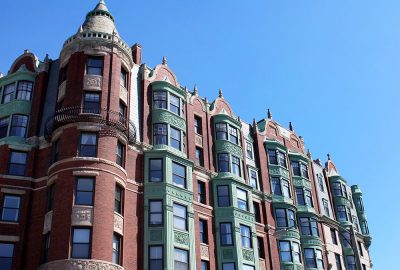
The Massachusetts Commission Against Discrimination held a conference April 8 to discuss the growing issue of housing discrimination in Boston.
MCAD — an independent state agency tasked with eliminating discrimination in Massachusetts — virtually hosted its second annual conference to address the ongoing trends of discrimination in the housing market.
A report published in March 2021 by the Massachusetts Community and Banking Council showed that Black and Hispanic Bostonians are much more likely to be denied a federal loan than white or Asian Bostonians — 4.7% of white Bostonians were denied a federal loan in 2019, whereas Black and Hispanic Bostonians were denied 10.1% and 8.6% of the time, respectively.
According to the report, people of color were denied mortgage loans more often than white applicants because of factors such as lower average credit scores and higher debt-to-income ratios “due to decades of discriminatory lending and housing policy.”
“Affordable housing is essential to creating access to opportunities for people who are low-income earners, and it contributes to the vibrancy and vitality of those communities,” Chairwoman of MCAD Sunila Thomas George said at the start of the event. “But sadly, the MCAD still receives hundreds of housing discrimination complaints every year, and we know that much of housing discrimination goes unreported.”
The conference had two panels — the first discussed how environmental issues like climate change magnify racial inequalities, and the second focused on the resources for individuals affected by housing discrimination that is currently in place, and resources still needed.
William Berman — the moderator of the second panel and the director of Suffolk University’s Housing Discrimination Testing Program — said the program aims to observe and detect possible biases that landlords may have by hiring testers to act as potential renters.
“For example, if a white tester gets told [by a landlord] ‘here’s the apartment, and here’s three others,’ and the Black tester gets told there’s nothing available, then you know that there’s evidence of housing discrimination,” Berman said.
Berman said housing discrimination can be be based on many factors like race, religion and mobility status
“There are a lot of forms that those solutions can take,” Berman said. “I’m always in favor of more resources for the kind of testing that we do because often people don’t realize they’re being discriminated against or can’t prove it unless you have this kind of evidence. So it’s very, very critical for those kinds of resources.”
Laura Rosi — the CEO of Housing Families, an organization that aims to provide resources for afflicted families — said people can also be discriminated against if they have Section 8 housing vouchers, which is a government program that helps people afford housing.
“[Families with Section 8 vouchers] have seen discrimination in the forms of landlords saying they don’t accept Section 8, which is illegal,” Rosi said, “to more subtle forms of discrimination where landlords are requiring upfront application fees or holding fees for apartments, or requiring tenants to earn three times the amount of their rent to show they can afford it.”
One of the panelists was City Councilor Lydia Edwards, who played a key role in amending the Boston Zoning Code to include fair housing requirements and building upon the Affirmatively Furthering Fair Housing act that was strengthened under the Obama administration.
“It’s not enough to simply say, ‘we’re going to just remove those signs,’ ” Edwards said at the panel. “It is part of our mission to remove those obstacles, to find them and to obliterate them, and to take those meaningful actions.”
Kelly Turley, one of the panelists and the associate director of Massachusetts Coalition for the Homeless, said The HOMES Act — a bill called An Act Promoting Housing Opportunity and Mobility Through Eviction Sealing which is currently pending in the House Committee on Ways and Means — aims to keep people who are evicted confidential.
Dan Jackson — the executive director of NuLawLab at Northeastern University that helps to educate individuals and families about housing insecurity — said he believes an increase in conversation should also come with an increase in action.
“I would encourage everybody who’s involved and cares about housing, housing stability and housing security to get active and let’s start trying things for solutions,” Jackson said.
Rosi said the obstacles discriminated groups face are “discouraging.”
“I hope to see all of us coming together,” Rosi said. “It’s not an issue that just people in the housing field can solve. We really have to get everybody’s buy-in to continue making progress.”





I am so glad that they are finally thinking of the people who got evicted and not able to get housing no matter how much money they make or have I’ve been trying for years to get a apartment but due to being evicted because of what my kids did almost over ten or more years it’s still keeps me from having my own place